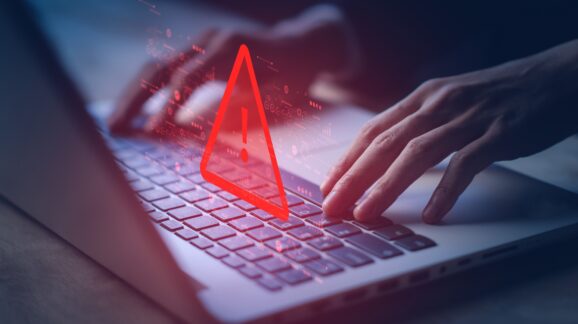Otherwise Objectionable Podcast episode 1: ‘The Most Misunderstood Law on the Internet’

Photo Credit: Getty
Otherwise Objectionable is the brand-new limited series podcast that tells the true story of how a previously-obscure defamation law, Section 230 of the 1996 Telecommunications Act, is behind America’s amazing tech boom as well as the internet experience we all rely on and take for granted today. Hosted by veteran tech journalist Mike Masnick, who founded the award-winning Techdirt blog at the dawn of the internet era, Otherwise Objectionable takes the listener inside the creation of Section 230, which protects websites from being sued for content written by third parties that they host. Masnick speaks with witnesses to Silicon Valley’s Wild West era, the then-Congressmen who wrote the law, critics who think it should be repealed or altered, and innovators who benefited from its balance of innovation and responsibility.
Episode 1 debuted on March 12 and starts our story in the present day, with some Democrats and Republicans attacking Section 230 in the press, and with legal cases turning into decisions at the Supreme Court.
But the show begins with the moving personal story of Rachel Barkley, a wife and mother living in the Washington, DC metro area, and how Section 230 has made a difference in her life. Rachel works in public policy and shares her story of working on Capitol Hill, meeting her husband Taylor, and starting a family. Rachel is getting ready to have their first child when she starts experiencing pain in her shoulder.
Rachel: Two weeks after I had my child, I asked my husband to bring me the baby so I could nurse. And I tried to move my leg, and I couldn’t even move a toe. And the leg was completely paralyzed, and I just was in shock.
Narrator: She and her husband go to the emergency room. For multiple days, they’re scanning her brain and her spine, calling in doctors, trying into figure out what’s going on. Finally, a neurosurgeon comes in with a diagnosis. He says:
Rachel: You’re a young family. I hope you have your affairs in order. You have a very large tumor growing in your spinal cord. It’s probably been growing there for years. You have to have surgery or else it’s gonna completely paralyze your whole body. And you could wake up, quadriplegic, completely. Devastating.
Rachel has surgery and wakes up paralyzed from the shoulders down. She and Taylor quickly find they need help keeping their family and friends updated on her condition and progress. They find a site called Caring Bridge where they can share updates with a growing community – eventually garnering around 80,000 views on their posts. They turned to GoFundMe to help with medical and home expenses and raised thousands of dollars. And Rachel finds community with mothers who have the same rare condition on Instagram.
Rachel: I’d just be alone in the dead of morning, unable to sit myself up in bed, just sitting there. And so I did spend a lot of time on Instagram. And I found this vibrant community of moms who are wheelchair users, and I saw them, posting videos on this is how I pick my baby up from the floor, or this is how I transfer my baby into the car and then get my wheelchair in the car. And I would direct message some of them on Instagram and say like, thanks for sharing this. What car seat did you get? When I get home, I need to figure this out. And I would ask really practical questions on how they lived. And I saw them, talking about how they dealt with the grief of their paralysis, and I would be like, “Oh, I felt that grief too. I felt that very same thing.” And it was just such a lift to me to see there are other people out there doing this. To see them go on adventures with their little kids and seeing that that’s possible. Like this wasn’t a death sentence for me; that I could live a great life as a mom from a wheelchair.
Masnick also speaks with cyberlaw professor at the US Naval Academy and author of The Twenty Six Words That Created the Internet Jeff Kosseff about how Section 230 directly led to the rise of the companies today – like Meta, Google, and Microsoft – that shape our online experience.
Jeff Kosseff: They’ve all developed their own policies and procedures in terms of taking content down and keeping it up, and it’s very much been a market-based system in making that determination. And they’ve been able to do that because of Section 230, so it’s not an accident that so many of the biggest success stories of the internet are based in the United States because we have Section 230 and the other countries have much weaker protections for intermediaries.
Listen to Otherwise Objectionable Episode 1: The Most Misunderstood Law on the Internet
You can subscribe to Otherwise Objectionable on Apple Podcasts, YouTube, Spotify, RSS, or wherever you get your podcasts.